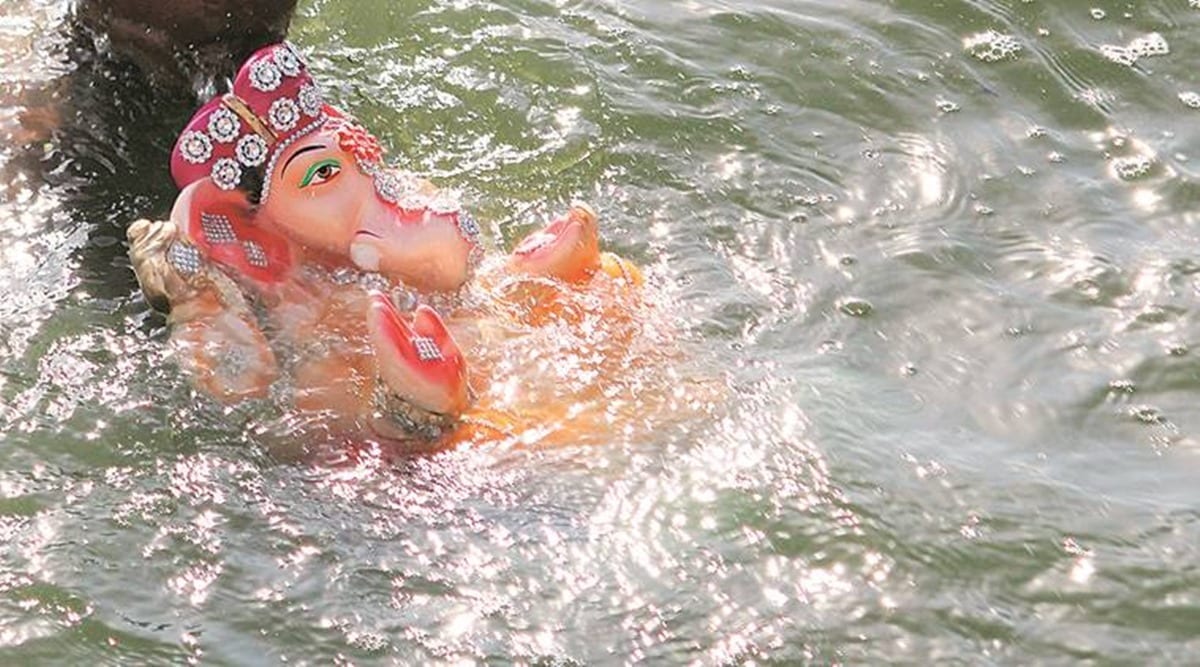 The annual festival will begin on August 22. (File)
The annual festival will begin on August 22. (File)THE ADMINISTRATION in Pune will not allow processions for idol immersion at the end of the 10-day Ganesh festival this year, so as to control the spread of Covid-19. While the outbreak has slowed down in the district, it still remains the worst-hit in the country.
The annual festival will begin on August 22.
At a Covid-19 review meeting in Pune, Deputy Chief Minister Ajit Pawar deliberated over the question with senior officials and elected representatives.
It was decided that permission to conduct the immersion procession on Laxmi Road – as well as other smaller processions elsewhere in the district – could not be allowed.
Speaking to the media later, Pune Divisional Commissioner Saurabh Rao said the decision was made in the light of the central government’s directives to avoid religious, social or political events with potential to attract crowds in highly affected districts.
“Now that economic activity is picking up and social life is normalising, containing the virus is becoming increasingly difficult. In such a scenario, the districts have been directed to ensure that no big religious function, social or political event takes place, which may result in the spread of the virus. At the meeting held by the guardian minister, elected representatives were urged to make appeals to celebrate Ganesh Chaturthi at home and with simplicity,” Rao said.
He also it was not clear yet if public installations of idols and creation of dekhavas – which attract hundreds of visitors – will also not be allowed. “Immersion procession will not be allowed. Prominent Ganesh mandals and manache mandals are cooperating with us; they may opt to webcast daily aarti of the idol instead of inviting devotees to be physically present,” Rao said.
Notice to industrial units for ‘violations’
Rao said at the Covid-19 review meeting, some elected representatives from rural areas pointed out that industrial units in MIDC areas were not observing precautionary measures to contain the spread of Covid-19. They also alleged that the units were “hiding infections” from the health authorities, Rao added.
“We have decided to issue summary notice to all industrial units at MIDCs in rural areas such as Chakan, Rajgurunagar, Kurkumbh, and Ranjangaon warning them of strict action, if they fail to follow precautionary measures and hide infections from the medical authorities. They will face action under the Epidemic Diseases Act, 1897,” he said.
The divisional commissioner also said considering the growing trend of cases in rural areas, the administration has decided to purchase 50,000 antigen test kits and supply to various talukas for conducting tests. While testing, criteria and standard operating procedure as fixed by Indian Council of Medical Research will be followed.